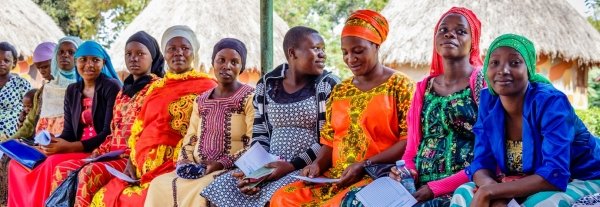MHI Update - September 2022

|
Greetings from the Maternal Health Initiative! We hope you have all had a fruitful summer. At MHI, we had an eventful few months. We hosted high level dialogues on masculinities and peacekeeping, midwifery in humanitarian settings, sustainable partnerships for improved maternal and newborn health outcomes, and the U.S. launch of the 2022 UNFPA State of World Population Report. We also released two policy briefs: one on declining fertility rates globally and the role of infertility and the second, in partnership with our colleagues at the Environmental Change and Security Program, on demographic trends, gender inequality, and security challenges in the Sahel. You can find links to these works, as well as our numerous articles published to the Dot-Mom column, below.
In June, MHI recognized Pride Month, when communities around the world honor the struggle that LGBTQ+ people face in the fight for equality and we followed the less celebratory U.S. Supreme Court decision to overturn Roe v. Wade and remove the constitutional right to abortion in the United States. Our mission at MHI is to better the lives of women and birthing people globally through research, high-level convenings, and actionable solutions. We are paying close attention to what this decision means for U.S. foreign policy on abortion and the ripple effects of restricting bodily autonomy and rights on the world’s women, girls, and birthing people.
This fall, stay tuned for our upcoming work on the impacts of climate change on maternal and newborn health and population dynamics, migration and care work, and the lasting mental health challenges offset by the COVID-19 pandemic by subscribing to our email list.
MHI also just launched our own LinkedIn account, where we will share our work and the work of others on topics related to our work. Details are below—please follow us and stay connected.
[SBB signature placeholder]
Recent publications

|
|



